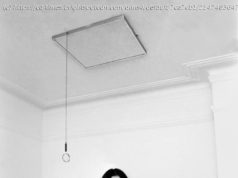MATT LAWTON: Mino Raiola, who made a staggering £41.39m from Paul Pogba’s move to Manchester United, has insisted he has not been in breach of the third party ownership rules
The relationship between Paul Pogba’s agent and Juventus is said to be the focus of FIFA’s investigation into the France midfielder’s world record £89.3million transfer last summer.
But Mino Raiola, who made a staggering £41.39m from that one deal, has insisted he has not been in breach of the third party ownership rules introduced by world football’s ruling body in May 2015.
As Sportsmail revealed on Tuesday, Raiola negotiated an astonishing deal with Juventus when he took a then 19-year-old Pogba from United to Turin in August 2012. Because signing Pogba had cost Juventus only £1.5m, in the event of a future move they agreed to pay Raiola 50 per cent of everything over a figure of around £40m.
According to a book published in Germany this week it meant Raiola was paid £22.8m from the transfer fee alone — as well as a further £16.39m in fees from United and £2.2m from Pogba. The evidence presented in Football Leaks: The Dirty Business of Football appears to be supported by a statement Juventus made to the Italian stock exchange last August.
The statement confirmed that a significant chunk of the money was not being paid to the club. It said: ‘An agreement has been finalised with Manchester United for a consideration of €105m. The economic effect is positive for about €72.6m, net of solidarity subsidy and auxiliary expenses.’
The difference at today’s exchange rate is £27.2m.
Raiola told the Financial Times last year: ‘I can’ t talk about the contract but in a deal like Pogba’s, it’s not just the clubs who earn from it.’
Asked specifically if it was paid by Juventus, he said: ‘No — not in the way that you’ re saying it. I have to see how I can phrase this in a way that Juventus cannot tackle me through the law, let’s say. Hmm. How can I say it? (Long pause) Yes: in this deal Juventus was not the only owner of the player’s rights.’
He was then asked if that was not therefore a breach of third party ownership rules, given that it was banned. ‘Not then,’ said Raiola in reference to the fact that he struck the deal with Juventus in 2012. ‘Only afterwards.’
He admitted that before 2015, when the new ruling was introduced by FIFA, he did have stakes in some players. ‘Not often, but sometimes,’ he said.
Asked if Pogba was among the clients he had a stake in, he said: ‘It’s not TPO (third party ownership) . Be careful with the legal definition of TPO. But let’s say that in that case there was an upside for our side. And by our side, I mean the player’s side.’ Raiola conceded that such arrangements are ‘not allowed any more’ and the FT also quoted Juventus saying ‘no third party had any ownership of the player’s rights’ .
But one well-placed observer nevertheless posed the question of ‘where a stake in the transfer ends and third party ownership begins’ .
In April 2015, FIFA said: ‘Third party ownership of players’ economic rights refers to third party investments in the economic rights of professional players, potentially in order to receive a share of the value of any future transfers of those players.’
A ban on TPO was introduced on May 1 that year but FIFA said that ‘existing agreements can remain in place until their ordinary contractual expiry’ . The governing body also said that ‘as an additional obligation, all existing agreements covered by the ban need to be recorded within FIFA’s Transfer Matching System by the end of April 2015’ .
It remains to be seen if the Pogba transfer comes under the scrutiny of the British tax authorities at a time when they are investigating a number of deals in English football.
That, however, was described by one insider as a red herring, not least because Pogba is not even obliged to submit a tax return until January 31 next year. Further to that, he does appear to have paid his agent a fee for negotiating his return to Old Trafford. HMRC seem to be more concerned with deals where clubs have allegedly paid the agent’s fee for the player, who then has not declared it as a benefit in kind on which he should pay tax.






